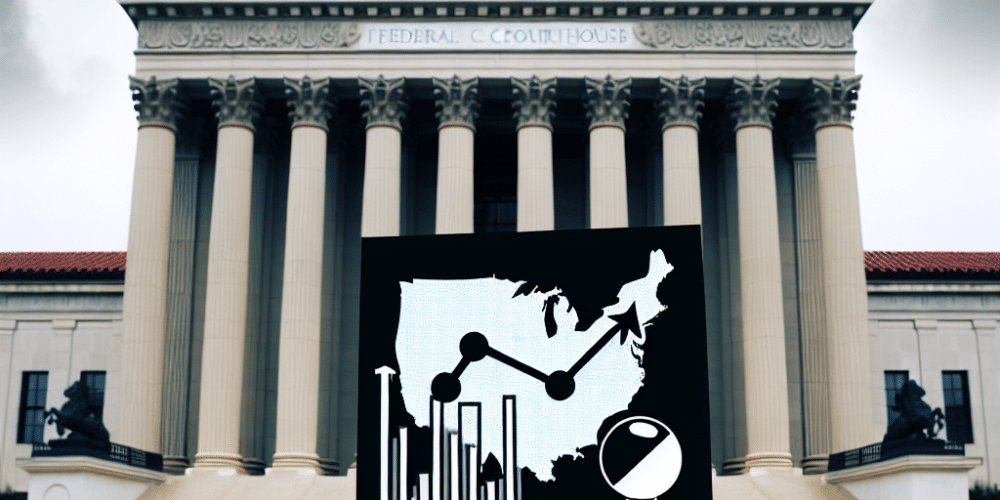Kalshi, a prominent player in the online prediction market sector, has initiated a legal battle in federal court against the Ohio Casino Control Commission and the state Attorney General. The lawsuit, filed on October 7 in the US District Court for the Southern District of Ohio, seeks to overturn the state’s decision to restrict Kalshi’s right to offer “event contracts” related to sports outcomes. Kalshi argues that these actions exceed Ohio’s regulatory authority and interfere with federally permitted business activities.
At the heart of the conflict is Ohio’s recent cease-and-desist order, which Kalshi contends has created uncertainty for potential business partners and threatens to tarnish its reputation in the broader US market. The Columbus Dispatch reported that the company is pursuing both temporary and permanent injunctions to prevent Ohio from enforcing its restrictive measures.
Kalshi operates within the framework set by the Commodity Futures Trading Commission (CFTC), which categorizes its offerings as financial futures contracts rather than traditional sports bets. According to Kalshi, this distinction exempts it from state gambling regulations. However, Ohio authorities contest this classification, insisting that any activity resembling sports betting must comply with state licensing mandates.
In early 2025, the Ohio Casino Control Commission (OCCC) notified Kalshi to halt its operations, asserting that its sports-related event contracts constituted unlicensed gambling activities. The commission also cautioned Ohio’s licensed sportsbooks against collaborating with Kalshi, warning that such partnerships could jeopardize their gaming licenses. As a consequence, Kalshi claims that these warnings have discouraged similar collaborations beyond Ohio’s borders, impacting its business relationships on a national scale.
The upcoming court hearing, scheduled for October 20, has the potential to significantly influence the regulatory landscape for sports-based prediction markets. Kalshi’s lawsuit argues that Ohio’s actions represent an unlawful attempt to undermine its business by equating prediction markets with illegal or unregulated gambling operations. The company maintains that these measures contravene federal law and disrupt interstate commerce.
Ohio Attorney General Dave Yost’s office, on the other hand, supports the view that state governments should retain control over sports betting regulations within their territories. In court filings, Yost’s team has argued for the necessity of stringent rules to manage prediction markets, emphasizing the risks of unchecked gambling-related issues. They believe that revoking these regulatory powers could expose the public to potential harm.
This case underscores a growing tension between federally regulated prediction platforms and state gaming authorities. Kalshi is not new to such disputes, having encountered resistance from officials in other states such as New Jersey, Nevada, and Massachusetts. Authorities in these regions have similarly held that Kalshi’s operations constitute gambling services requiring appropriate licensing.
The legal outcome of Kalshi’s challenge may redefine the boundaries of state and federal jurisdiction over prediction markets. A victory for Kalshi could establish a precedent limiting states’ ability to regulate markets already overseen by the CFTC, potentially reshaping the industry. Conversely, if Ohio prevails, it could reinforce states’ authority to govern all forms of betting linked to sports outcomes.
As the legal showdown approaches, industry stakeholders are closely monitoring the developments. Analysts suggest that the decision could either embolden states to take firmer stances against prediction markets or encourage a reevaluation of existing regulatory frameworks to accommodate such innovations.
In the midst of these deliberations, a narrative emerges of a classic jurisdictional conflict between state rights and federal oversight. Some argue that a uniform federal approach would offer clarity and consistency, fostering innovation while ensuring consumer protection. Others counter that states are best positioned to address local concerns and should retain the flexibility to tailor regulations to their specific needs.
For Kalshi, the stakes are high. A favorable ruling could pave the way for expanded operations and the normalization of prediction markets as a legitimate financial instrument. Meanwhile, Ohio and its allies stand firm in their belief that preserving state control is essential for safeguarding public interests.
This legal battle has broader implications beyond Kalshi. It could set a national precedent that influences how similar companies navigate the complex regulatory environment in the US. As the October 20 hearing looms, both sides are preparing to make their case, aware of the potential ripple effects their arguments may have across the country. The decision awaits, promising to be a pivotal moment for the future of prediction markets in America.

















